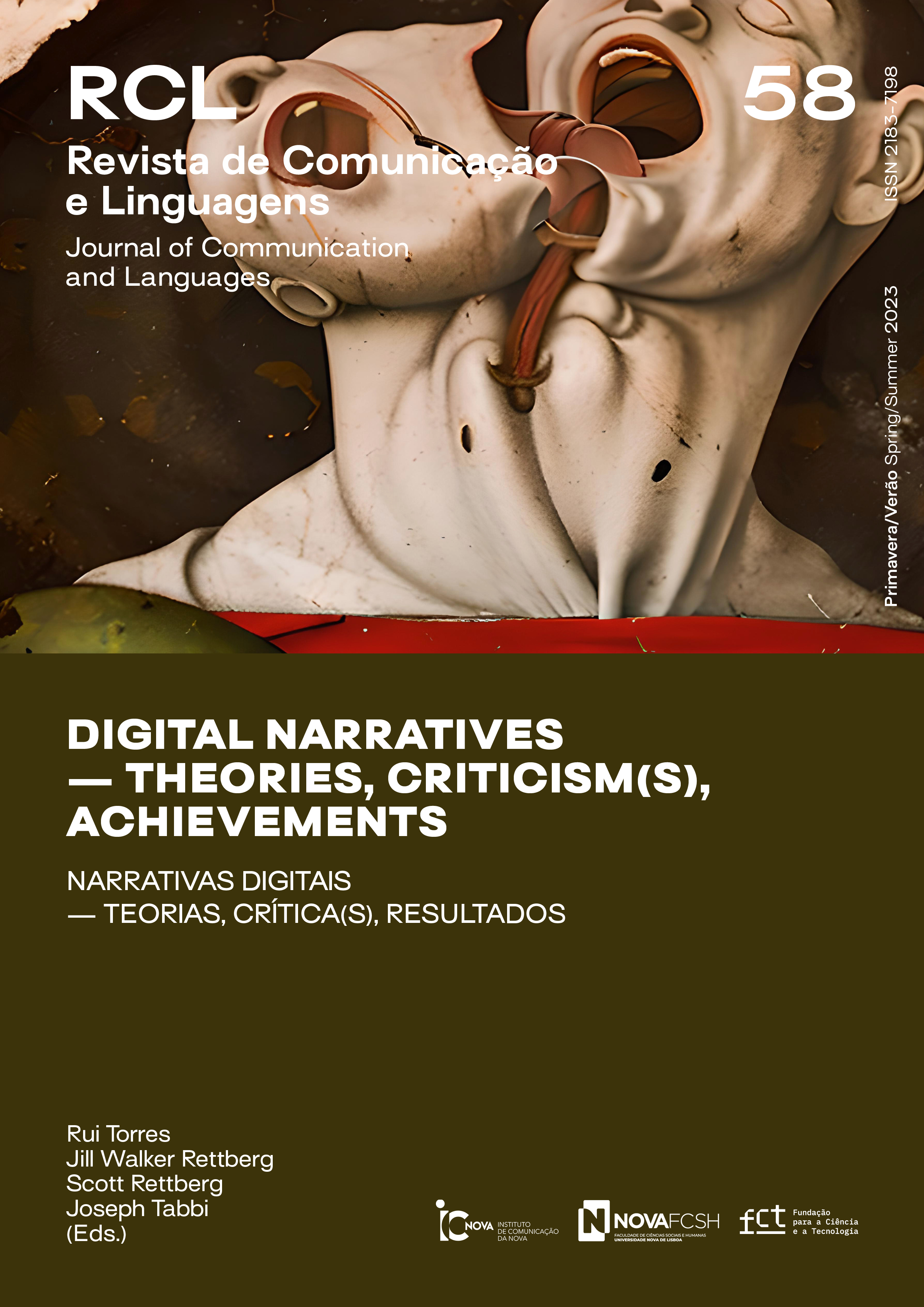Digital Narratives — Theories, Criticism(s), Achievements: Introduction
Abstract
This issue of RCL addresses how an awareness of digital technologies, platforms and algorithms can help us understand newly emerging digital narratives in our current globalized network society. Digital narratives include stories in computer games, electronic literature, virtual and augmented reality, chat bots, web and mobile apps as well as stories that circulate in social media or are AI-generated.
Our goal was to motivate the analysis of how digital narratives remediate our cultural contexts and re-integrate literary modes and methodologies, by confirming or opposing the specific affordances of platforms, and how these exchanges create opportunities for media literacy, education and social justice. To achieve this, we invited scholars and artists to submit papers that address the interaction between human storytelling and computational methods, providing a triangular structure that included approaches based on Theories, Criticism(s), and Achievements.
The impacts of algorithmic narrativity on renewed and emerging narrative forms demand contextualized and situated studies about how they are produced, circulated and extracted, as well as self-assessment and criticism to explain how interactions of human authors with non-human agents are programmed, structured and delivered.



